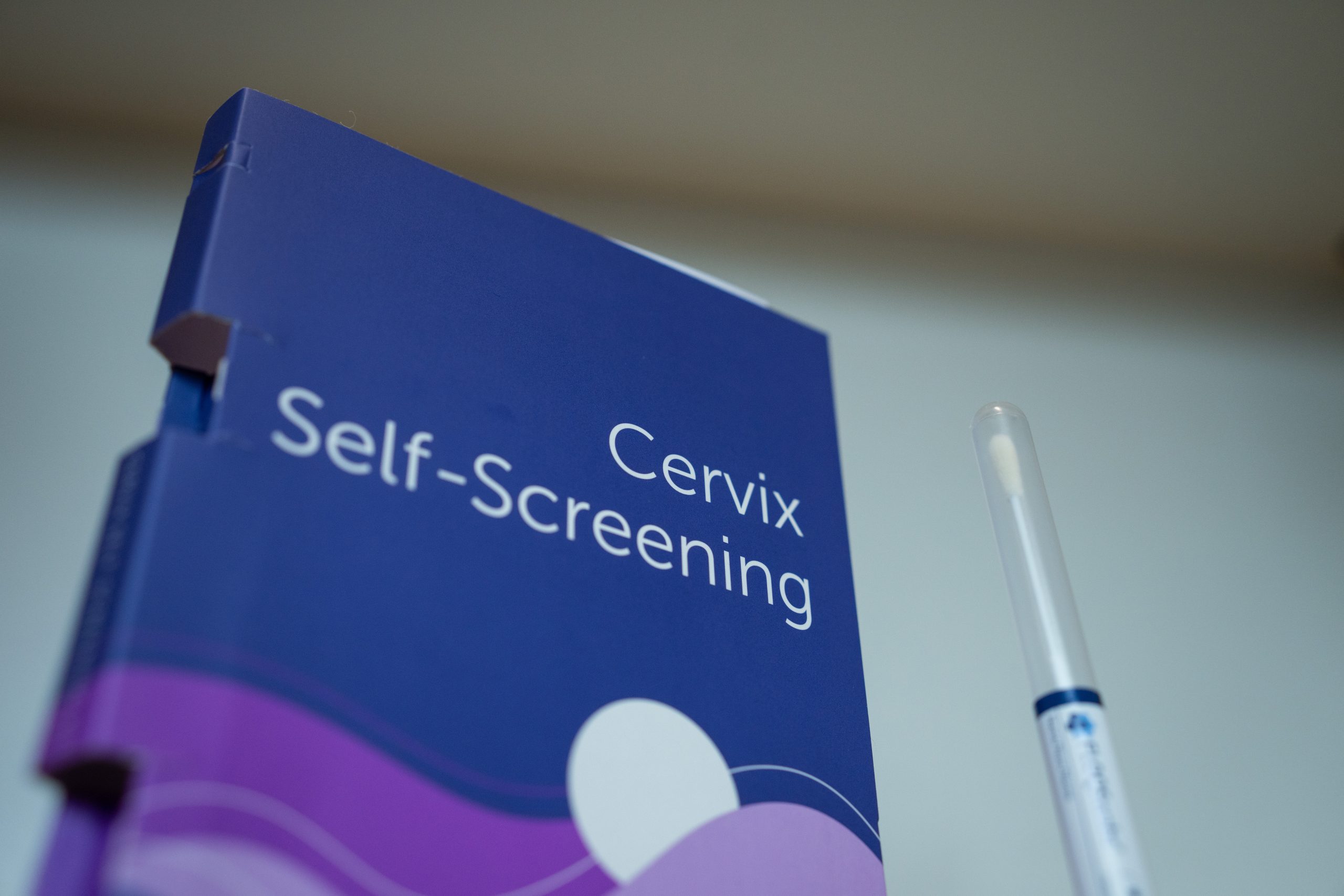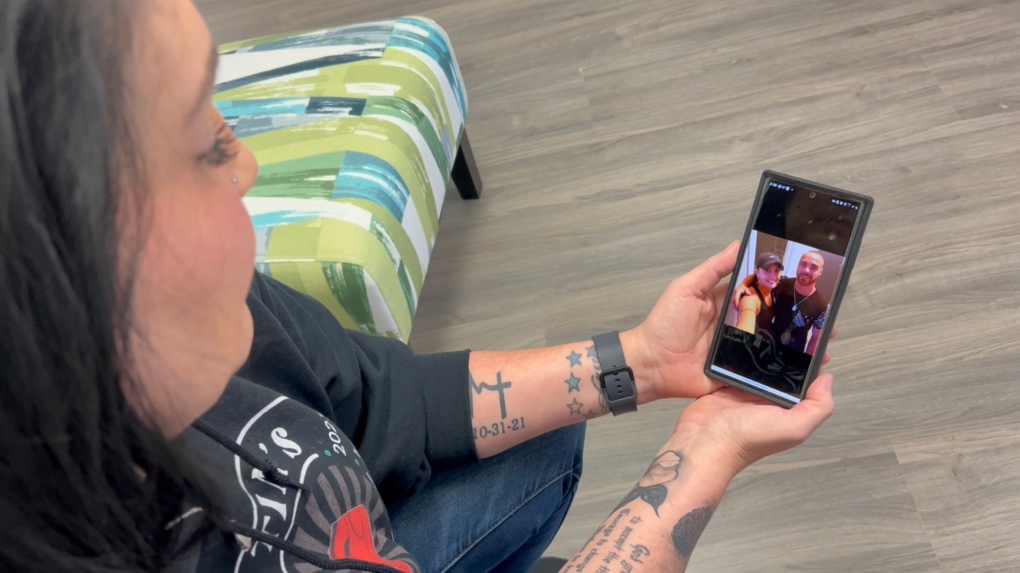Health
Watch For Bogus Online COVID Vaccines – country94.ca


Health Canada is warning you not to buy COVID-19 vaccines sold on the internet or from unauthorized sources since they are fake.
In a Wednesday safety notice, The government agency warns “counterfeit COVID-19 vaccines may pose serious health risks, and are ineffective at protecting an individual from the coronavirus.”
The alert follows the release of the Pfizer-BioNTech vaccine this week in Canada and the securing of a vaccine from Moderna.
The problem is not unique to our country, the Health Canada posting adds “The International Criminal Police Organization, INTERPOL, has issued a global alert to law enforcement across its 194 member countries warning them of this issue.”
Health
Experts say Canada's cancer screening guidelines are outdated – CityNews Calgary


A group of doctors say Canadian cancer screening guidelines set by a national task force are out-of-date and putting people at risk because their cancers aren’t detected early enough.
“I’m faced with treating too many patients dying of prostate cancer on a daily basis due to delayed diagnosis,” Dr. Fred Saad, a urological oncologist and director of prostate cancer research at the Montreal Cancer Institute, said at a news conference in Ottawa on Monday.
The Canadian Task Force on Preventive Health Care, established by the Public Health Agency of Canada, sets clinical guidelines to help family doctors and nurse practitioners decide whether and when to recommend screening and other prevention and early detection health-care measures to their patients.
Its members include primary-care physicians and nurse practitioners, as well as specialists, a spokesperson for the task force said in an email Monday.
But Saad and other doctors associated with the Coalition for Responsible Healthcare Guidelines, which organized the news conference, said the task force’s screening guidelines for breast, prostate, lung and cervical cancer are largely based on older research and conflict with the opinions of specialists in those areas.
For example, the task force recommends against wide use of the prostate specific antigen test, commonly known as a PSA test, for men who haven’t already had prostate cancer. Saad called that advice, which dates back to 2014, “outdated” and “overly simplistic.”
The task force’s recommendation is based on the harms of getting false positive results that lead to unnecessary biopsies and treatment, he said.
But that reasoning falsely assumes that everyone who gets a positive PSA test will automatically get a biopsy, Saad said.
“We are way beyond the era of every abnormal screening test leading to a biopsy and every biopsy leading to treatment,” he said, noting that MRIs can be used to avoid some biopsies.
“Canadian men deserve (to) have the right to decide what is important to them, and family physicians need to stop being confused by recommendations that go against logic and evidence.”
RELATED: World Cancer Day 2024: WHO estimates 1 in 5 people will be diagnosed with cancer
Dr. Martin Yaffe, co-director of the Imaging Research Program at the Ontario Institute for Cancer Research, raised similar concerns about the task force’s breast cancer screening guideline, which doesn’t endorse mammograms for women younger than 50.
That’s despite the fact that the U.S. task force says women 40 and older may decide to get one after discussing the risks and benefits with their primary-care provider.
The Canadian task force is due to update its guidance on breast cancer screening in the coming months, but Yaffe said he’s still concerned.
“The task force leadership demonstrates a strong bias against earlier detection of disease,” he said.
Like Saad, Yaffe believes it puts too much emphasis on the potential harm of false positive results.
“It’s very hard for us and for patients to balance this idea of being called back and being anxious transiently for a few days while things are sorted out, compared to the chance of having cancer go undetected and you end up either dying from it or being treated for very advanced disease.”
But Dr. Eddy Lang, a member of the task force, said the harms of false positives should not be underestimated.
“We’ve certainly recommended in favour of screening when the benefits clearly outweigh the harms,” said Lang, who is an emergency physician and a professor at the University of Calgary’s medical school.
“But we’re cautious and balanced and want to make sure that we consider all perspectives.”
For example, some men get prostate cancer that doesn’t progress, Lang said, but if they undergo treatments they face risks including possible urinary incontinence and erectile dysfunction.
READ MORE: Dry February encourages people to drink less, reduce cancer risk
Lang also said the task force monitors research “all the time for important studies that will change our recommendations.”
“And if one of them comes along, we prioritize the updating of that particular guideline,” he said.
The Canadian Cancer Society pulled its endorsement from the task force’s website in December 2022, saying it hadn’t acted quickly enough to review and update its breast cancer screening guidelines to consider including women between 40 and 50.
“(The Canadian Cancer Society) believes there is an obligation to ensure guidelines are keeping pace with the changing environment and new research findings to ensure people in Canada are supported with preventative health care,” it said in an emailed statement Monday evening.
Some provinces have implemented more proactive early detection programs, including screening for breast cancer at younger ages, using human papillomavirus (HPV) testing to screen for cervical cancer and implementing CT scanning to screen for lung cancer, doctors with the Coalition for Responsible Healthcare Guidelines said.
But that leads to “piecemeal” screening systems and unequal access across the country, said Dr. Shushiela Appavoo, a radiologist with the University of Alberta.
Plus, many primary-care providers rely on the national task force guidelines in their discussions with patients, she said.
“The strongest association … with a woman actually going for her breast cancer screen is whether or not her doctor recommends it to her. So if her doctor is not recommending it to her, it doesn’t matter what the provincial guideline allows,” Appavoo said.
In addition to updating its guideline for breast cancer screening this spring, the task force is due to review its guidelines for cervical cancer screening in 2025 and for lung cancer and prostate cancer screening in 2026, according to its website.
Canadian Press health coverage receives support through a partnership with the Canadian Medical Association. CP is solely responsible for this content.
Health
Mobile Health Clinic in Bridgewater this week


|
|
Nova Scotia Health’s mobile primary care clinic. Photo: NS Health.
Nova Scotia Health’s mobile primary care clinic will be retunring to Bridgewater this week for two sessions on Wednesday and Sunday.
They will be setting up at the South Shore Community Health building located at 35 North Street. On Wednesday, April 17 the clinic will be open from 5:30 p.m. until 9:00 p.m., and on Sunday, April 21 it will operate from 9:30 a.m. until 3:00 p.m,.
The clinic is intended to help those without a family doctor, or those unable to book an appointment with their family doctor for non-urgent medical issues.
Types of concerns that may be addressed at the mobile primary care clinic include:
- Prescription refills or renewals (except for controlled substances)
- Minor respiratory symptoms
- Sore throat
- Earaches
- Fever
- Headache
- Rashes
- Minor gastrointestinal concerns (vomiting and diarrhea)
- Cough, flu, or cold symptoms
- Urinary tract infections
- Muscle pain





Health
Windsor mom pushing for better addiction transitional supports | CTV News – CTV News Windsor


A new study published in a Canadian medical journal paints a bleak picture around opioid-related deaths in Canada.
It shows the number of those deaths has more than doubled over a three-year period when the pandemic hit high gear.
The study, published recently in the Canadian Medical Association Journal, covers a period from January of 2019 to December 2021.
“There was this immediate and significant increase in opioid related deaths,” said Tara Gomes, an epidemiologist at Unity Health.
Over that three-year stretch, opioid deaths jumped from 3,007 in 2019 to more than 6,222 in 2022, which according to study authors equates to a quarter million years of life lost due to opioid-related deaths.
The group most affected is men between the ages of 30 and 39.
It hits close to home for Christy Soulliere of Windsor, Ont. who lost her son Austin Tremblay to an accidental overdose in November, 2022.
“He’s gone. You know, and there’s nothing worse in the world than losing a child,” said Soulliere.
She said Tremblay battled addiction since he was 15 and was in and out of treatment facilities more than a dozen times.
On his last day, after 30 days of sobriety, he took a substance which was laced with four times the lethal dose of fentanyl.
“I crumbled,” she recalled. “My world, everything I had fought 12 years to stop, it happened.”
Tremblay was just 27 years old.
In Ontario, one in three deaths of people in their 20s and 30s are opioid related and according to the study, they’re primarily caused by fentanyl.
“These are kids, it’s a whole generation. And if those numbers are right, it’s 25 per cent of that generation is no longer going to be here,” said Soulliere. “I don’t know how people aren’t taking that serious.”
The report suggests the increase among younger age groups points to a critical need for targeted prevention efforts.
And that’s exactly what Soulliere is doing in her son’s memory.
She launched Austin’s Red Shoe Project with the goal of opening a transitional house for people who have gotten sober, left detox and need support before treatment beds open up.
“Nobody’s staying sober for those four months. So there needs to be an area that fills that gap,” she said. “And there needs to be more support for families that are dealing with this themselves.”
-
Tech3 hours ago
Motorola's Edge 50 Phone Line Has Moto AI, 125-Watt Charging – CNET
-
Media22 hours ago
Trump Media plunges amid plan to issue more shares. It's lost $7 billion in value since its peak. – CBS News
-



 Investment23 hours ago
Investment23 hours agoLatest investment in private health care in P.E.I. raising concerns – CBC.ca
-
Real eState4 hours ago
Search platform ranks Moncton real estate high | CTV News – CTV News Atlantic
-



 Investment22 hours ago
Investment22 hours agoInvestors are growing increasingly weary of AI – TechCrunch
-
News16 hours ago
Budget 2024 sets up a ‘hard year’ for the Liberals. Here’s what to expect – Global News
-



 Investment12 hours ago
Investment12 hours agoSo You Own Algonquin Stock: Is It Still a Good Investment? – The Motley Fool Canada
-
Media16 hours ago
Psychology group says infinite scrolling and other social media features are ‘particularly risky’ to youth mental health – NBC News




